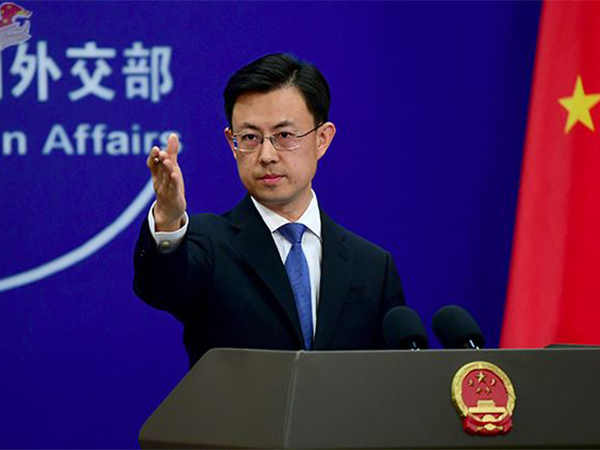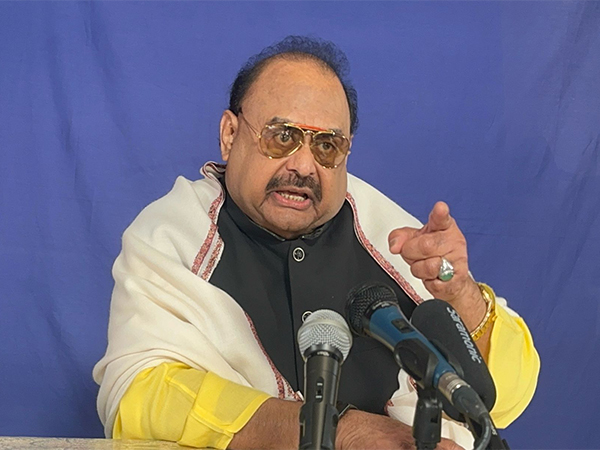Kazakhstan nuke power plant referendum: Step towards democracy, energy independence
Sep 27, 2024

By Dr Chandan Kumar
New Delhi [India], September 27 : On October 6 this year, Kazakhstan will hold a historic referendum to determine whether the country should proceed with building its first nuclear power plant. This referendum is not just about energy infrastructure; it symbolizes President Kassym-Jomart Tokayev's broader commitment to fostering democracy and engaging the public in decisions that will shape the nation's future.
The decision to hold a referendum on this matter reflects a pivotal moment in Kazakhstan's post-Soviet journey, as it seeks to balance its vast natural resources with the needs of its growing economy and the global move toward cleaner energy.
Kazakhstan, a country blessed with immense mineral wealth, including the world's largest deposits of uranium and significant rare earth minerals, is at a crossroads. The country's economic growth and increasing energy demands require a reliable, sustainable energy source. Currently, Kazakhstan relies heavily on coal, natural gas, and oil to meet its energy needs, contributing to the country's carbon emissions and environmental challenges.
The prospect of a nuclear power plant offers a solution to these challenges. As the world's top producer of uranium, Kazakhstan has the potential to use its domestic resources to fuel nuclear energy, reducing dependence on fossil fuels and making strides toward carbon neutrality. Building a nuclear power plant could help the country diversify its energy mix, stabilize energy prices, and provide cleaner electricity to millions of people. In the long run, it can position Kazakhstan as a leader in clean energy in Central Asia.
However, despite the clear economic and environmental benefits, nuclear energy remains a contentious issue globally. The people of Kazakhstan, like in many other countries, have concerns over nuclear safety, waste management, and environmental risks. The decision to hold a referendum reflects the government's recognition that this is not just a technical decision but a societal one.
What makes this referendum particularly significant is the broader political context in which it is happening. Since taking office, President Kassym-Jomart Tokayev has emphasized the need to gradually open up Kazakhstan's political system and increase public participation. While Kazakhstan has had a complex and, at times, authoritarian political landscape, Tokayev has shown a commitment to planting the seeds of democracy, evident in his moves to decentralize power and engage civil society in decision-making.
The referendum on the nuclear power plant is an important example of this democratic evolution. By placing the power of this decision directly in the hands of the people, Tokayev is showing a willingness to trust the public with the future of the country's energy policy. In his speeches, Tokayev has stressed that no major infrastructure projects should go ahead without the approval of the public. This is a marked shift from Kazakhstan's past, where large-scale decisions were often made behind closed doors by a small group of elites.
By promoting this referendum, Tokayev is encouraging the growth of a civic culture where citizens can express their opinions, debate important issues, and influence national policy. This is a notable step forward in Kazakhstan's democratic journey, positioning the country closer to international democratic standards.
The referendum's outcome will have profound implications for Kazakhstan's energy policy, economic development, and environmental goals. Should the public approve the construction of a nuclear power plant, it could signal a new era of energy independence for Kazakhstan. The proposed site for the plant near Lake Balkhash has already been identified, and early feasibility studies indicate that nuclear energy could meet a significant portion of Kazakhstan's future energy needs.
However, the decision to build a nuclear power plant comes with responsibilities. Kazakhstan would need to ensure the highest safety standards, taking lessons from global experiences in nuclear energy, including nuclear accidents in other parts of the world. The construction of the plant would need to be accompanied by strict regulations on waste management, operational safety, and environmental protection. Transparency, accountability, and public oversight will be critical to ensure the success of the project.
Kazakhstan's democratic journey is still in its early stages, and the country has much to learn from other nations with long-standing democratic traditions. India, as the world's largest democracy and one of the fastest-growing economies, has a unique role to play in supporting Kazakhstan's transition toward a more open and participatory political system. India and Kazakhstan share deep historical ties, with relations spanning over 2,000 years through trade, culture, and the exchange of ideas. As both countries look to the future, there is significant potential for collaboration in several areas, particularly in democratic governance and economic development.
India's experience in conducting large-scale electoral processes can offer valuable insights for Kazakhstan as it navigates its own democratic evolution. India's success in managing the world's largest elections, its vibrant civil society, and its system of decentralized governance are all areas where Kazakhstan can learn and adapt practices that suit its own context. Additionally, India's citizen-oriented initiatives like Startup India and Digital India could provide models for Kazakhstan to foster innovation, entrepreneurship, and digital governance.
The referendum on October 6, 2024, will be a defining moment in Kazakhstan's political and economic history. It is not just about whether a nuclear power plant should be built; it is about how Kazakhstan's citizens view their country's future and their role in shaping it. The vote will provide a litmus test for public attitudes toward nuclear energy and the environment, as well as the country's trust in its democratic institutions.
If the referendum passes and the nuclear power plant goes forward, Kazakhstan could become a regional leader in clean energy, setting an example for neighbouring countries on how to harness natural resources responsibly. However, the government will need to ensure that all voices are heard in the process, including those who have legitimate concerns about the risks of nuclear power.
For President Tokayev, the referendum is a continuation of his efforts to democratize Kazakhstan's political system and involve citizens in major national decisions. His leadership in promoting public participation and transparency is laying the foundation for a more open, accountable, and responsive government. The seeds of democracy that he is planting now may take time to fully grow, but they are already changing the way decisions are made in Kazakhstan.
In the years to come, as Kazakhstan continues to evolve politically and economically, its relationship with India will remain a cornerstone of its international partnerships. India's role as a mentor and partner in areas like democratic governance, digital innovation, and economic development will be crucial as Kazakhstan charts its path forward.
As the country prepares for the October 6 referendum, the world will be watching to see how Kazakhstan embraces this democratic exercise. Regardless of the outcome, the process itself is a positive step toward a more inclusive and participatory political system--one where the people have a say in shaping their own destiny.

















